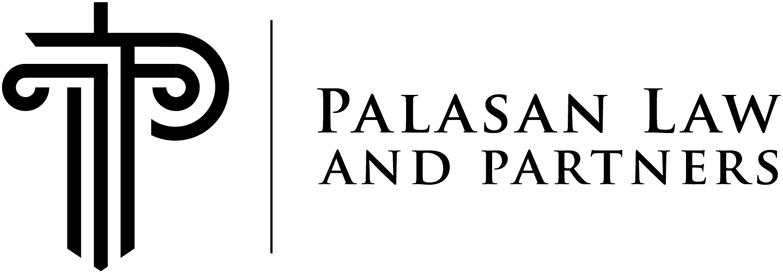The Supreme Court has dismissed the petition for indirect contempt filed by Datu Andal Ampatuan, Jr. (Andal) against ABS-CBN Corporation (ABS-CBN) and ABS-CBN reporter Jorge Cariño (Cariño).
In a Decision penned by Senior Associate Justice Marvic M.V.F. Leonen, the Supreme Court En Banc granted the petition for review on certiorari filed by ABS-CBN and Cariño challenging the rulings of the Court of Appeals (CA) which had affirmed the Regional Trial Court’s (RTC) refusal to dismiss the indirect contempt petition filed by Andal.
On November 23, 2009, dozens of armed persons stopped the convoy of Maguindanao gubernatorial candidate Esmael Mangudadatu on its way to file his Certificate of Candidacy. At least 57 died in what is now known as the Maguindanao Massacre. Criminal cases for murder were subsequently filed against 197 persons, including Andal and members of his family.
On June 23, 2010, in an interview by Cariño that aired on ABS-CBN’s TV Patrol World, Lakmodin Saliao (Saliao) narrated that he was present when the Ampatuan family planned what became the Maguindanao Massacre. Saliao named the Ampatuan family members who were present at the meetings.
This prompted Andal’s petition before the RTC to cite Saliao, ABS-CBN, and Cariño for indirect contempt, claiming that Saliao’s interview was “calculated to interfere with court proceedings to serve Saliao’s own interest without passing through the scrutiny of the police of the National Prosecution Service…” Andal also prayed that Saliao, ABS-CBN, and Cariño be prohibited from making further statements in any forum or media during the pendency of the Maguindanao Massacre cases.
ABS-CBN and Cariño jointly prayed for the dismissal of Andal’s petition for failing to state a cause of action. The RTC ultimately denied their motion, which was upheld by the CA, prompting the present petition before the Court.
In granting the petition by ABS-CBN and Cariño, the Court reexamined the basis of the Court’s contempt powers and defined what constitutes contemptuous speech and why such is punished.
Contempt of court is “disobedience to the Court by acting in opposition to its authority, justice, and dignity. It signifies not only a willful disregard or disobedience of the court’s orders, but such conduct as tends to bring the authority of the court and the administration of law into disrepute or in some manner to impede the due administration of justice.”
The Court stressed that the power to punish for contempt, vested in all courts, is inherent in the exercise of judicial power as stated under Article VIII, Section 1 of the 1987 Constitution.
“Courts exercise inherent contempt powers by restricting speech that tends to bring the court into disrespect or scandalize the court, or where there is clear and present danger that would impede the administration of justice,” said the Court.
It added that the exercise of contempt powers ensures the decisional and institutional aspects of judicial independence crucial in the administration of justice.
The Court, however, cautioned that given its “drastic and extraordinary” nature, its exercise must be restrained and judicious and “used only in flagrant cases and with utmost forbearance.”
Specific to contemptuous speech, it is restrained by the courts by way of punishment for indirect contempt under Rule 71, Section 3(d) of the Rules of Court. Among those considered contemptuous speech is the violation of the sub judice rule, which generally restricts comments and disclosures pertaining to judicial proceedings, including the contents of actual pleadings filed, comments on the credibility of witnesses, assessment of the evidence offered, the relevance of the evidence presented, and any other matter that is presented in the trial for a judge’s appreciation.
“The rationale of the sub judice rule is to protect against the dangers of the publication to directly influence a judge or indirectly through public opinion in resolving a particular case,” the Court held.
It added that while the right to free speech includes the right to know and discuss judicial proceedings, this does not include statements that are aimed to influence judges in deciding a pending case.
The Court cautioned, however, that there must be “a showing of the serious and imminent threat of an utterance on the court’s administration of justice before it can be punished.”
The Court further warned that the contempt powers of the court, while may be used to restrict the speech of the media and the public, must not be broadly exercised as to deter the freedom of the press and its right to give legitimate publicity of matters of public interest. “Our power to punish for contempt should never be wielded to stifle comments on public interest.”
In the case of the present contempt petition against ABS-CBN and Cariño for alleged violation of the sub judice rule, the Court found that the contempt petition must be dismissed for failing to state all the required facts.
The Court held that all of the following must be alleged in a petition for indirect contempt: (1) that public statements were made regarding the merits of the case while it is pending before the courts; (2) the mental element of the speaker who uttered the contemptuous speech showing that the purpose of the speech is to impede, obstruct, or degrade the administration of justice; (3) the clear and present danger of the utterance to the court’s administration of justice, specifically identifying the importance and saliency of the information on the ability of courts to make an impartial decision; (4) the effect of the speech on the administration of justice such that the utterance will influence the court’s independence in ruling on a case, which will, in turn, affect public confidence in the Judiciary.
Andal’s petition, however, failed to state the second and third requirements. The relevant mental element to prove the existence of actual malice or deliberate or reckless disregard of the truth or falsity of the statement was not stated. Neither was there sufficient allegation of the clear and present danger of the interview and its broadcast to the court’s administration of justice.
“Those accused of indirect contempt should not be compelled to proceed to trial when the charges are grossly insufficient,” held the Court.
The Court, however, noted that had Andal’s petition sufficiently stated a cause of action, specifically all the required allegations, ABS-CBN and Cariño would have been guilty of indirect contempt in interviewing and broadcasting Saliao’s statements which are relevant in the pending criminal cases before he was even presented in court.
The Court held that the broadcast represented Saliao’s statements as testimony which they claim to be his personal knowledge directly bearing upon the guilt of Andal in the pending criminal cases.
The Court noted that at the time the interview aired, the criminal cases were already undergoing pre-trial. There was also no showing that ABS-CBN and Cariño secured leave from the prosecution to air the interview. ABS-CBN and Cariño thus “usurped the role of the courts in receiving testimony in allowing Saliao to state matters of his personal knowledge relating to the murders on national television…[they] cannot deny that Saliao’s statements are evidentiary matters relevant to the guilt of the accused in a pending case.”
The Court added that while ABS-CBN and Cariño are correct that Saliao’s statements are matters of grave public concern to which the press may give publicity, they should not have presented Saliao as a witness on national television.
“The use of the term ‘testigo’ in Saliao’s presentation to the public removes the distinction between media interviews and witness presentations in open court. Moreover, Cariño ended the interview in a manner that bolstered the truth of Saliao’s statements, again characterizing the interview as testimony,” said the Court.
The Court further stressed that the public interest character of Saliao’s statements is not an excuse to disregard the sub judice rule, especially in criminal cases pending before the courts.
“Responsible journalism is said to be the handmaiden of effective judicial administration, especially in the criminal field. The press does not simply publish information about trials but guards against the miscarriage of justice by subjecting the police, prosecutors, and judicial processes to extensive public scrutiny and criticism,” the Court held.
The Court thus reminded that in the exercise of the press of their freedom to give publicity to the news, it has the corresponding duty to ensure that they are not infringing upon the rights of the accused to a fair trial.
The Court also took the opportunity to discuss how contemptuous speech can now be committed online, including on social media, warning the courts on the importance of posts in social media as to the court’s administration of justice. (Courtesy of the Supreme Court Public Information Office)
FULL TEXT of G.R. No. 227004 (ABS-CBN Corporation and Jorge Cariño v. Datu Andal Ampatuan, Jr., April 25, 2023) at: https://sc.judiciary.gov.ph/227004-abs-cbn-corporation-and-jorge-carino-vs-datu-andalampatuan-jr/

